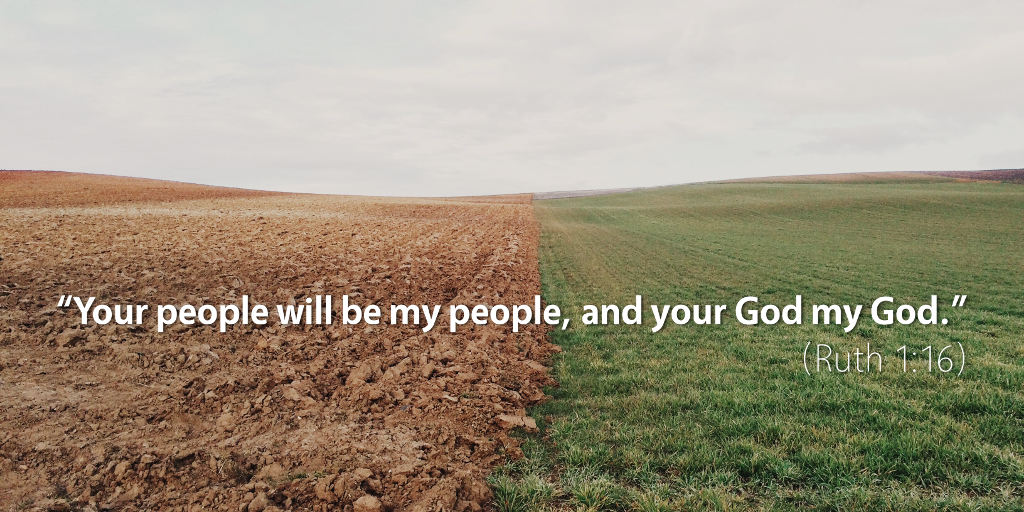Bible Readings for August 8th
Ruth 1 | Acts 26 | Jeremiah 36 | Psalm 9
In the book of Judges, Israel descended deeper and deeper into sinfulness, idolatry, and rebellion. The opening verse of the book of Ruth, then, is ominous: “In the days when the judges ruled there was a famine in the land…” (Ruth 1:1). Will the story of the book of Ruth be another story like what we just read—a story culminating in the crimes of Gibeah?
Certainly, every sign at the beginning of Ruth suggests that something terrible is about to happen, beginning with the famine that is taking place in Bethlehem (Ruth 1:1). This is no small irony, since the word Bethlehem in Hebrew means “House of Bread.” But more than that, Yahweh had promised that his people would never cease to have plenty of food to eat if Israel kept his covenant (Deut. 28:1–14), so this famine signals that something is seriously wrong in Israel. (Of course, we already knew that from reading the book of Judges.)
Furthermore, the famine in Ruth 1:1 reminds us of an earlier story in Genesis 12:10–20. There, a famine had prompted Abram and Sarai to disobey God by leaving the Promised Land and going down to Egypt (Gen. 12:10). This disobedience not only led to Abram’s lying about Sarai being merely his sister (Gen. 12:13) but also introduced Hagar into Abram’s household as an Egyptian female servant (Gen. 12:16)—and Hagar’s presence caused the holy family no small amount of trouble (cf. Gen. 16:1–16, 21:8–21). So, the fact that this book begins with Israelites leaving the Promised Land to go to a foreign country because of a famine is another red flag. Then, while this family is in Moab, the situation gets worse when the Israelites marry foreigners (Ruth 1:2–4)—and not just any foreigners, but Moabites, a group of people whom Yahweh had specifically warned his people to avoid (Deut. 23:3).
None of this bodes well, but when Naomi decides to leave Moab to return to her country because the famine had ended (Ruth 1:6), something strange happens. One of the Moabite women who had married into Naomi’s family turns back to her people (Ruth 1:15), but the other, Ruth, instead clings to Naomi (Ruth 1:14), refusing to leave her. Then, Ruth swears a covenantal oath to bind herself to Naomi, Naomi’s people, and even Naomi’s God: “Your people shall be my people, and your God my God” (Ruth 1:16).
As all Israel falls apart under the leadership of the judges, we have here a Moabite woman who swears her allegiance unreservedly to Yahweh and to Yahweh’s chosen people. Despite the many red flags at the opening of this story, God is doing something extraordinary. Through Ruth, God is putting plans into motion to save not only his people but the whole world as well.
Podcast: Play in new window | Download (5.2MB) | Embed
Subscribe: Apple Podcasts | RSS | More

Scripture quotations are from The Holy Bible, English Standard Version copyright © 2001 by Crossway Bibles, a division of Good News Publishers. Used by permission. All rights reserved.


